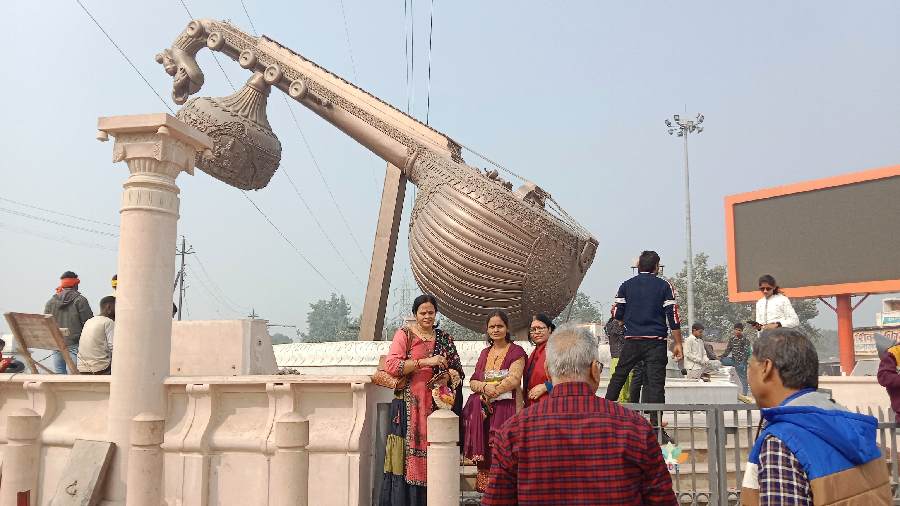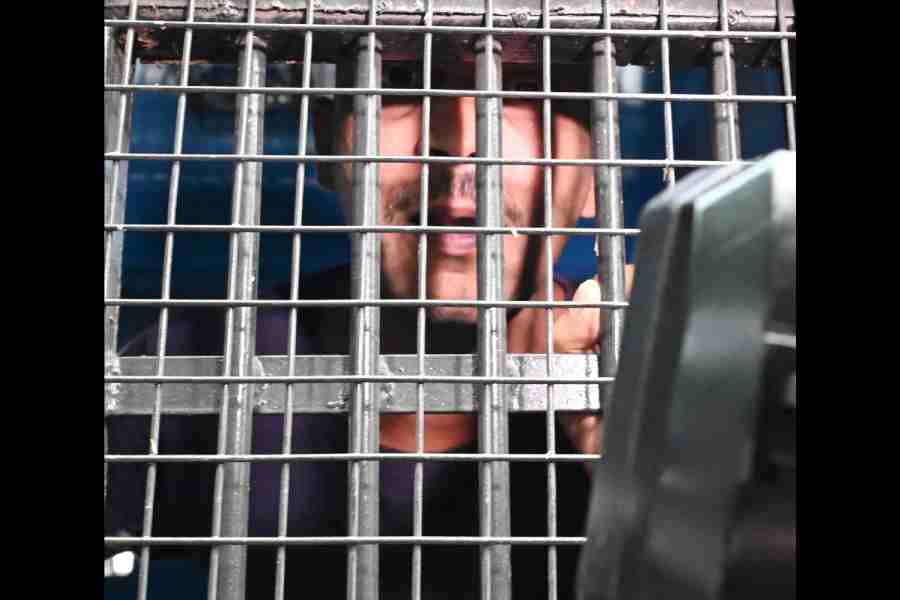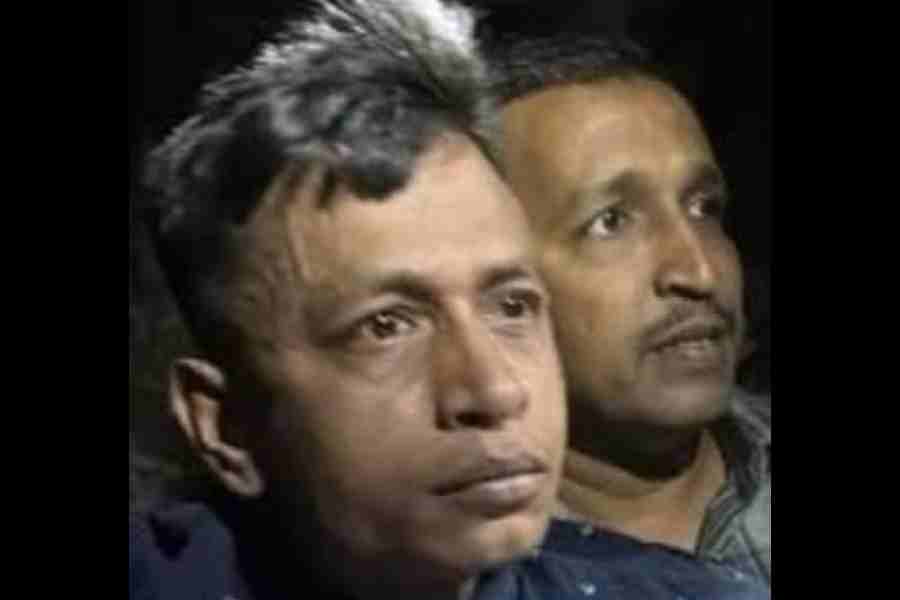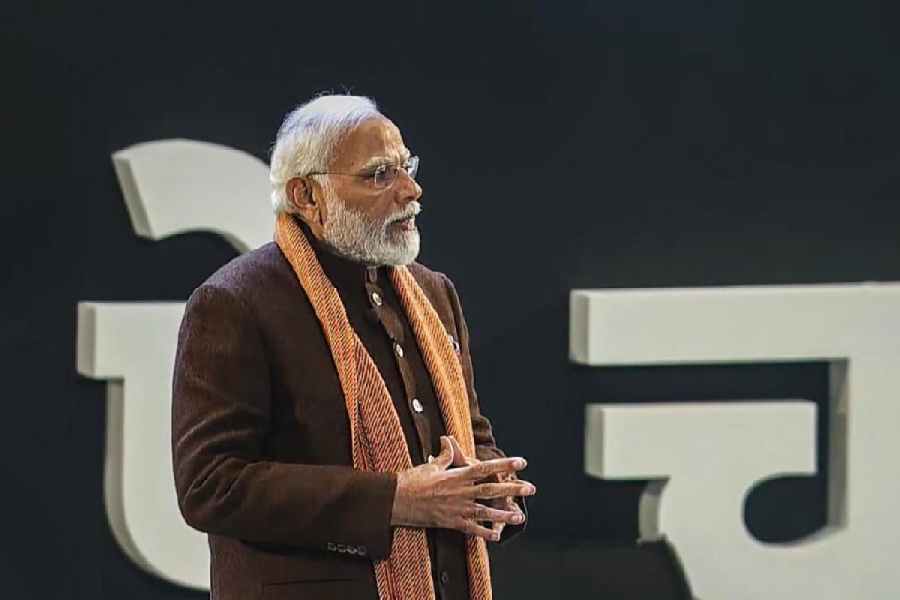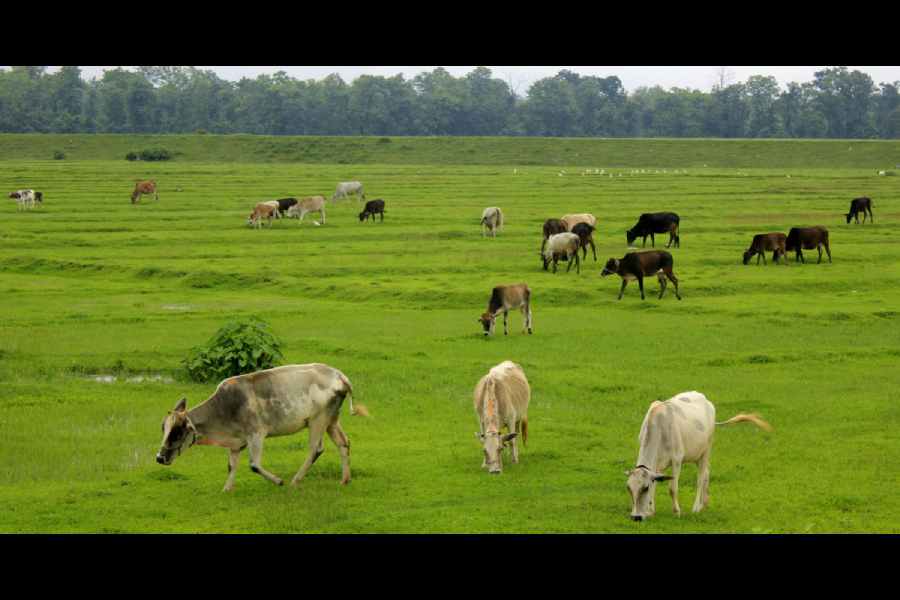The Lata Mangeshkar Chowk in the heart of Ayodhya has become a stop for many locals and tourists who use the roundabout to go to the site of the under-construction Ram Temple.
Constructed by the Uttar Pradesh government to honour the legendary singer on her 93rd birth anniversary, the chowk was inaugurated by Prime Minister Narendra Modi virtually on September 28.
"The roundabout reflects the grandeur of what Ayodhya is going to be developed into along with the Ram temple. It is also such a great tribute to Lata Mangeshkar ji. We all are truly delighted to see it," Mahendra Rana, a tourist from Una in Madhya Pradesh, said.
Located on the road leading to Faizabad, the chowk connects the Saryu Ghat (Naya Ghat) on one side and the Ram Path, which leads to the site of the under-construction Ram temple, on the other. It is here that most visitors start their tour of the city and their journey to the temple.
"I am from Ayodhya, we know this chowk as Naya Ghat chowk. I like how it has now been developed into a landmark. We stop here and take pictures for social media posts," 21-year-old college student Ajeet Pandey said as he clicked a photo of his friend near the 40-ft-long veena, weighing 14 tonnes, installed at the roundabout.
Ram bhajans by Lata Mangeshkar play on speakers in a loop as tourists evade traffic to walk up to the chowk. Some stand on the outside boundary while others cross over inside to take pictures and selfies before leaving for their onward journey.
Jhansi resident Abhishek Pal Singh along with his family members made a brief halt at the roundabout. "We have come to Ayodhya after four years. The chowk is a welcome change. The last time this place was choked with traffic. After taking some pictures here, we will visit the Ram temple and attend the aarti at the Saryu ghat in the evening," he said.
The Lata Mangeshkar Chowk, constructed with red sandstone, skirts a small tank at the centre of which rises the huge veena, inviting curiosity from onlookers. The instrument holds an important place in Indian classical music and is known as the instrument of Goddess Saraswati.
Inside the small tank are 92 white marble lotuses symbolising the 92-year-long life of Lata Mangeshkar.
"The construction cost of the project was around Rs 7.90 crore. The veena, which is at the centre, was designed by Padma awardee Ram V Sutar who is also credited with the design of the Statue of Unity," Ayodhya Development Authority vice chairman Vishal Singh said.
Police outposts and LCD screens are located on both sides of the roundabout. While the one on the Ram Path side, plays videos of Deep Diwali celebrations and an animation of the under-construction Ram temple, the other was off.
There is also an elevated police post, but when PTI visited it, nobody was manning it, and a large poster with pictures of BJP leaders hung on it.
Beside a bus stand at the roundabout, a 15-ft-tall statue of Lord Hanuman holding Ram and Laxman in a metal enclosure is also a stop for those visiting the city. A poster with a picture of Lata Mangeshkar and Sursamragyi Bharat Ratan Sushri Lata Mangeshkar Chowk written on it in red hangs on the stand. It also has a picture of the Ram temple.
During the inauguration of the chowk, Prime Minister Modi had said the sweetness of the singer's voice mesmerised him every time he spoke to her.
Be it the "Shri Ramchandra Kripalu Bhaj Mann, Haran Bhava Bhaya Darunam" mantra or hymns like "Payo Ji Maine Ram Ratan Dhan Payo" of Mirabai and Mahatma Gandhi's favourite "Vaishnav Jan", many countrymen had the darshan of Lord Ram through her songs," he had said.
PTI

